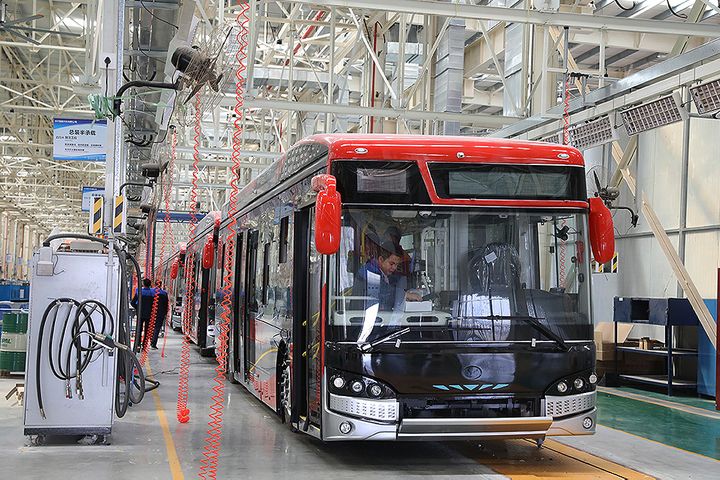 Subsidy Cuts Rattle China's New Energy Bus Market
Subsidy Cuts Rattle China's New Energy Bus Market(Yicai Global) Dec. 3 -- The Chinese market for new energy buses is sputtering. As the subsidy tap gets tightened, producers are also being squeezed by development bottlenecks and investors are bailing.
New energy bus sales fell 2.2 percent to 64,000 in the January to October period from a year earlier, according to figures from the China Association of Automobile Manufacturers. Just 5,098 were sold in October, an almost 44 percent drop.
Driven by high subsidies, the new energy bus industry has developed rapidly, with many listed manufacturers posting significant earnings growth in 2015, which they attributed to the state's financial support. Xiamen King Long Motor Group received government subsidies worth more than 10 times its annual net profit in 2015, while grants to Zhongtong Bus were three times its yearly profit.
But because makers of these buses have received higher subsidies than passenger car producers, the decline in support impacts them harder, Quanlian Auto Investment Management President Cao He told Yicai Global, adding that the relatively limited market space adds to the slackness.
Amid cutbacks in state support, the entire NEV sector has suffered, especially those firms that turn out new energy buses. Market share leader Zhengzhou Yutong Bus had net profit of CNY4.1 billion (USD582.3 million) in 2016 when subsidies amounted to CNY10.0 billion. The subsidies fell to CNY5.3 billion a year later, when it net profit dropped to CNY3.1 billion. And profits at most bus producers fell sharply last year.
Stake Sales
As a result, investors dumped stakes in some new energy bus companies. In April, Western Resources unveiled a plan to sell its two-thirds of unit Hengtong Bus. In September, Anhui Jianghuai Automobile Group announced the sale of Anhui Ankai Automobile, which was China's first new energy bus developer and the first to gain government approval. But Ankai Automobile was in deficit in 2017 and 2018.
At around 100,000 vehicles a year, the capacity of the new energy bus market is limited, so annual expansion is relatively fixed, Cui Dongshu, secretary general of the China Passenger Car Association, told Yicai Global.
The increment in the market will be high if subsidies are high, while the market will underperform if subsidies are low, he said, adding that the new energy bus market does not have too much room for growth and is approaching a ceiling, making it difficult to achieve breakthroughs.
With their home market souring, exports have become a new outlet for bus makers. Yutong Bus and BYD looking to expand their overseas markets.